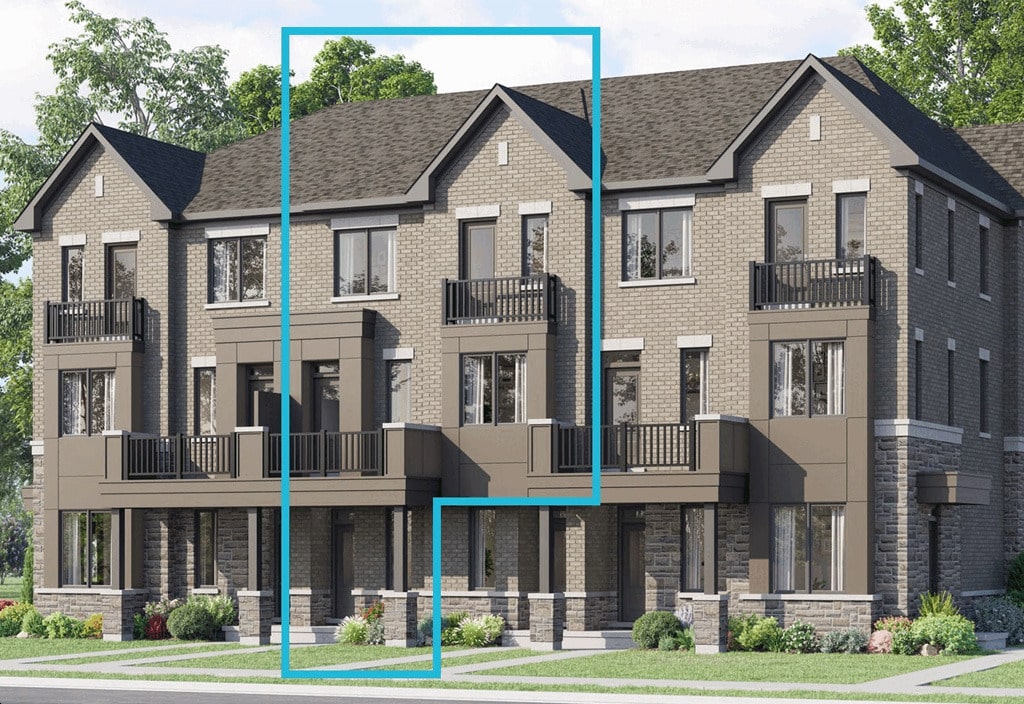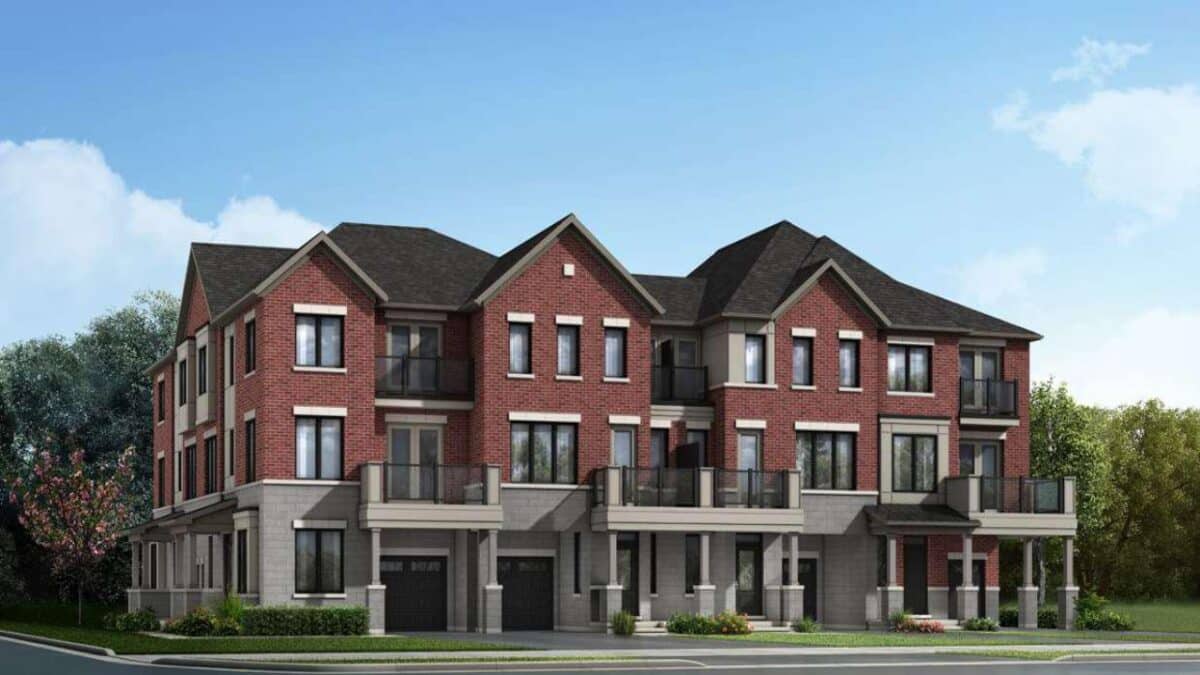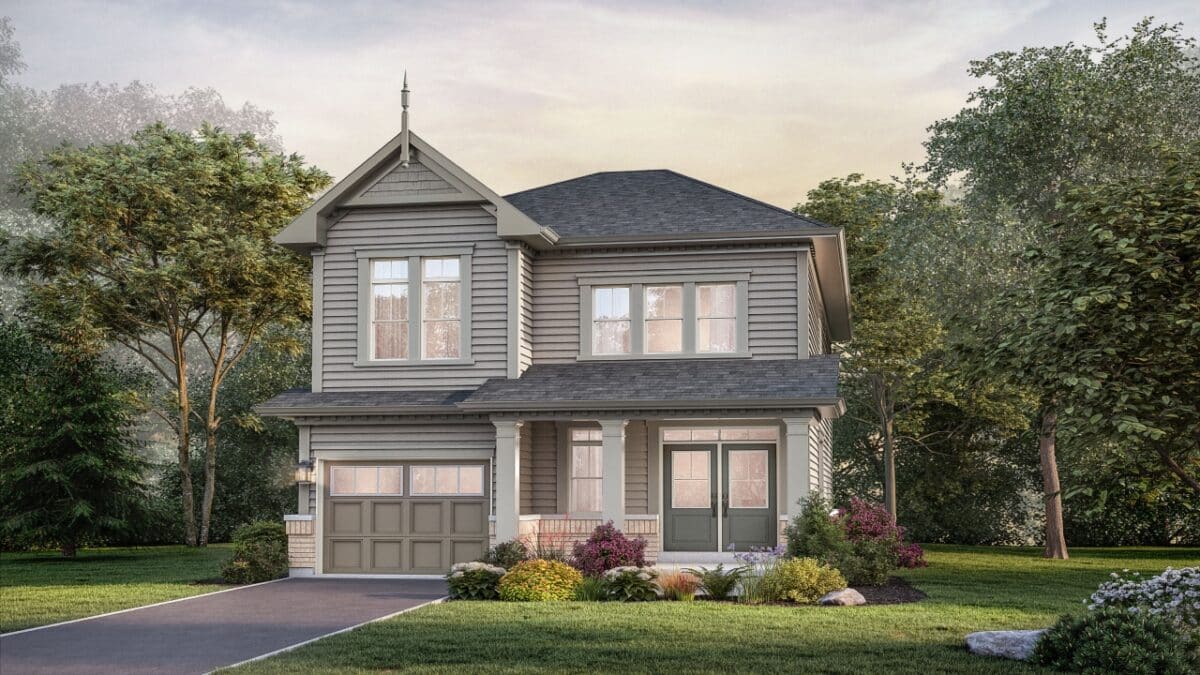List of New Homes in Guelph
-
Clairmont
Pricing From $589,990
Clair at Gosling eastbound, Guelph, ON
Developer - Mattamy Homes
Occupancy - 2027
View Details
Investing in Guelph Real Estate
The City of Guelph is a beautiful and growing city with a namesake university and a college campus in its borders, access to major cities which will develop into a reliable GO Train line by 2025, and a vibrant employment landscape with a diversity of industries that combine local and imported talent to put the city on the cutting edge of research and technology. Guelph has experienced very positive growth, increasing by 8.3% from 2011 to 2016, and projected to increase from its 2016 132,000 to 169,000 by 2031, and a steady development of new homes in Guelph has met this growth. The average age of this population is 39, with a high percentage of residents in the student and young professional age brackets of 20-34. About 1/3rd of Guelph’s residents are renters, with a median rent cost of $1,015/mo as of 2016. Its homes are more affordable than those of the GTA, which is set to change with its eventual swift connection to Toronto through a GO train expansion. Much of the city’s population are from European and American backgrounds, with about 15% of its population made up of visible minorities, the largest of which having a South Asian background. With real estate prices that are much more affordable than those in nearby GTA, the upcoming GO Train link combined with the city’s stellar development makes it valuable to be early when investing in the city’s real estate market.
New Homes In Guelph And Reasons To Buy
In MoneySense Magazine’s annual ranking of the best cities to buy real estate, Guelph sits at first place. It’s first in its affordability of Guelph’s real estate relative to the surrounding area, the speed at which real estate prices appreciate in the city, and a dash of subjective insight of the magazine’s analysts. Business development is encouraged by the local university and close proximity to other major cities via highways and a GO station, allowing people who live and rent in the city to be there for education, life, and work all within the city’s borders. The 401 makes for quick transit to the greater Toronto area, and a planned expansion to the GO train is set to provide direct GO Train routes to Pearson Airport in 23 minutes, and Downtown Toronto in 40 minutes by 2025. The above factors are why Guelph has very low unemployment and vacancy rates, ranking the best for employment rate in Ontario. Additionally, growing popularity means that the average rent increases by 1/5th over a 5 year period. For the time being, homes in Guelph are very affordable at about 60% of the cost of homes in the GTA, and the growing city will soon have a train linking it to the core of the GTA in just a few years.
- 1
- 1
- 1
- 1
- 1
Employment in Guelph
Employment in Guelph can’t be discussed without mentioning its university. Guelph University lies at the crux of the city’s continued development, with roughly 30,000 students and receiving several accolades, its graduates help fuel high-skilled employment in and around the area. Guelph university’s agricultural college was ranked #1 in Canada for agricultural science, which contributes to Guelph’s strong agricultural base. Additionally, Conestoga college has a campus in Guelph which too has a large number of students. Other services include advanced manufacturing, and environmental management and technology. Together, this trio of industries employ a large number of the city’s residents, and provide a community for entrepreneurs to develop their own businesses and ideas in that space with the ability to tap into a reservoir of educated students and recent-grads. The highest number of jobs are in the sectors of professional, scientific and technical, advanced manufacturing, retail and service, and agri-innovation. Anyone looking to move into or rent a new home in Guelph will have a wealth of trades and technical industries that they can apply their skills to, with a city atmosphere that looks toward eco-friendly progress for its future.

Average Home Prices for Guelph in 2021
Guelph experienced a decrease in new listings by 35.5% between August 2020-2021, thanks in part to Covid and other factors which have given the city its lowest number of new listings in the last decade. The price of homes meanwhile has risen by a quarter or more over the last year. Currently, single homes list at an average of $831,900, which is up by 27.7% since August 2020. The average sale price for homes was $907,106.
Transit And Accessibility
The city of Guelph benefits from close proximity to major roads running through the city and connecting to Kitchener, Waterloo, and to the Greater Toronto Area through highway 401. Neighbourhoods of pre-construction homes in Guelph are often built with easy access to the 401 in mind. For public transit in and out of the city, there are GO bus routes which take the highway into the city. Many people living in Guelph work in the city grounds, or commute to Cambridge or Kitchener-Waterloo. Specifically, about 40% of the population of Guelph takes 15 minutes or less to get to work, and a third up to half an hour. Only 15% of its residents take up to an hour, and the commuting opportunities are soon to be upgraded tremendously with the expansion of the GO train line into Guelph. A GO bus ride taking 1hr30m over the highway to get to Toronto will become a reliable 40 minute train ride by 2025, passing through Pearson Airport along the way.







